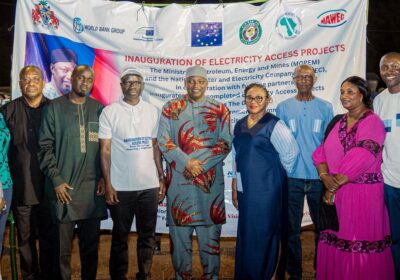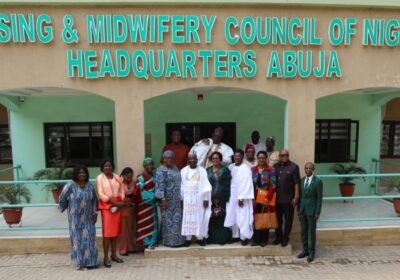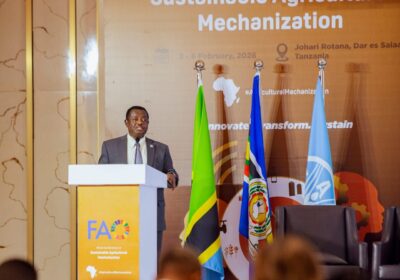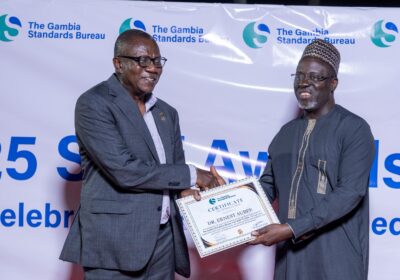ECOWAS Rotation Talks Open in Abuja as President Dr. Omar Alieu Touray, Bianca Odumegwu-Ojukwu Set the Tone for Equitable Regional Integration.
By Raymond Enoch.
In a decisive step toward reshaping the future of West Africa’s regional governance, the Economic Community of West African States (ECOWAS) today began a crucial two-day Ad-hoc Ministerial Meeting in Abuja, focused on the allocation and rotation of statutory leadership positions across its institutions for the 2026–2030 term. The session, hosted at the ECOWAS Commission, brings together high-level officials from across the sub-region amid intensifying expectations for equity, inclusiveness, and reform.
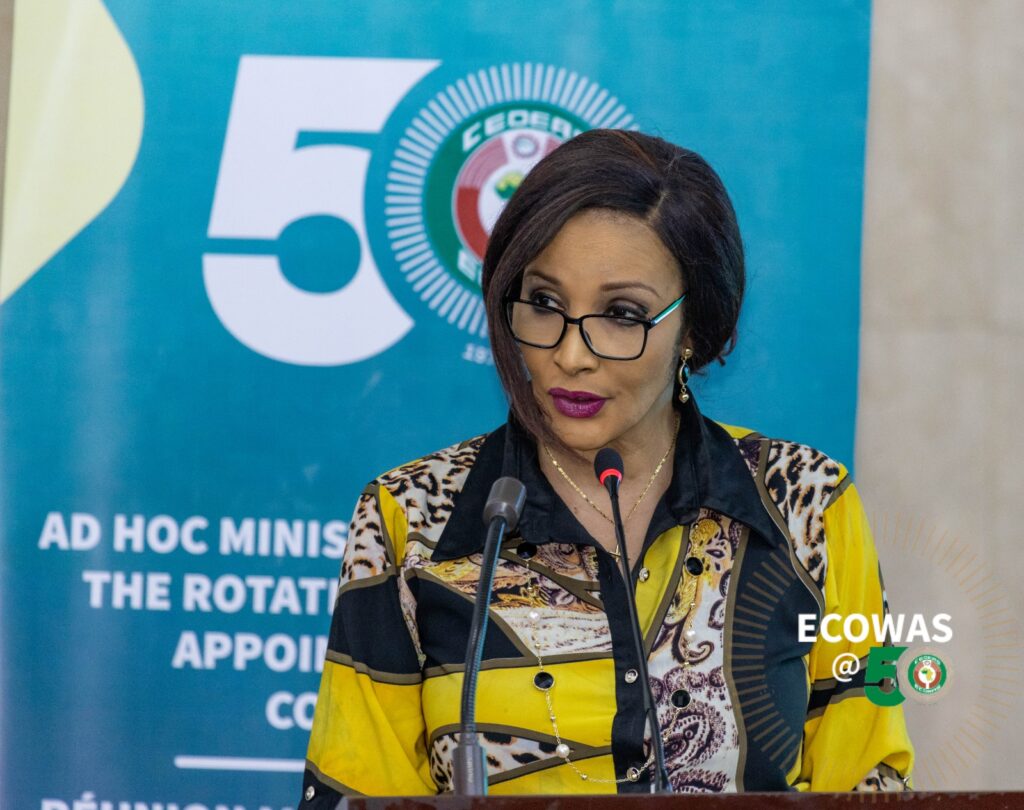
In a significant show of leadership, the President of the ECOWAS Commission, H.E. Dr. Omar Alieu Touray, formally welcomed delegates and laid out the Commission’s vision for a transparent and merit-based rotation system. He expressed appreciation to Nigeria, particularly President Bola Ahmed Tinubu and Minister of State for Foreign Affairs, Ambassador Bianca Odumegwu-Ojukwu, for their support and collaboration in facilitating the meeting.
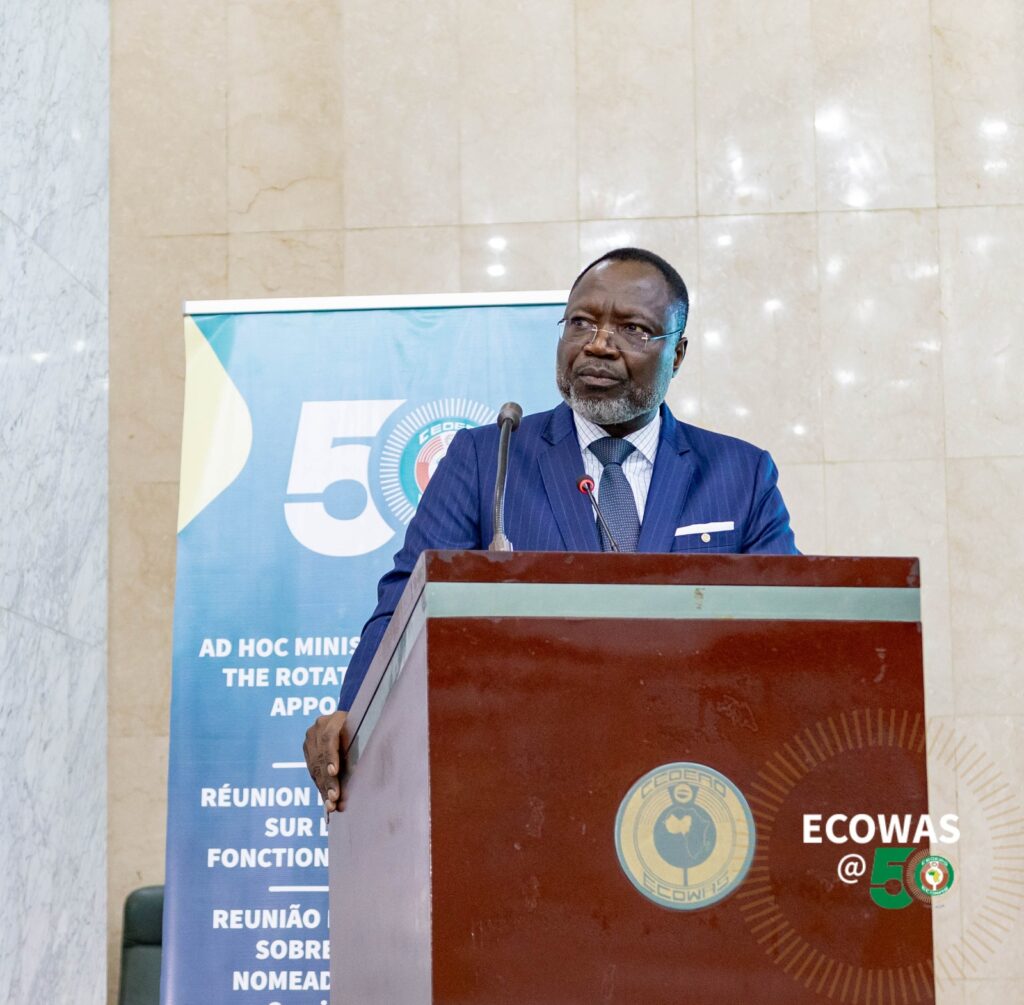
“It is an honour to welcome you to this meeting of the Ad-hoc Ministerial Committee for the Allocation of Statutory Positions,” Dr. Touray stated. “This exercise goes to the heart of the values that underpin our Community—regional balance, fairness, and a shared commitment to integration.”
Dr. Touray reminded the gathering of the June 2025 resolution from the 94th Ordinary Session of the ECOWAS Council of Ministers, which mandated the formation of this Committee to review the Commission’s proposals. With the current statutory office holders set to complete their four-year, non-renewable terms by mid-2026, the need for a coherent and just transition is pressing.
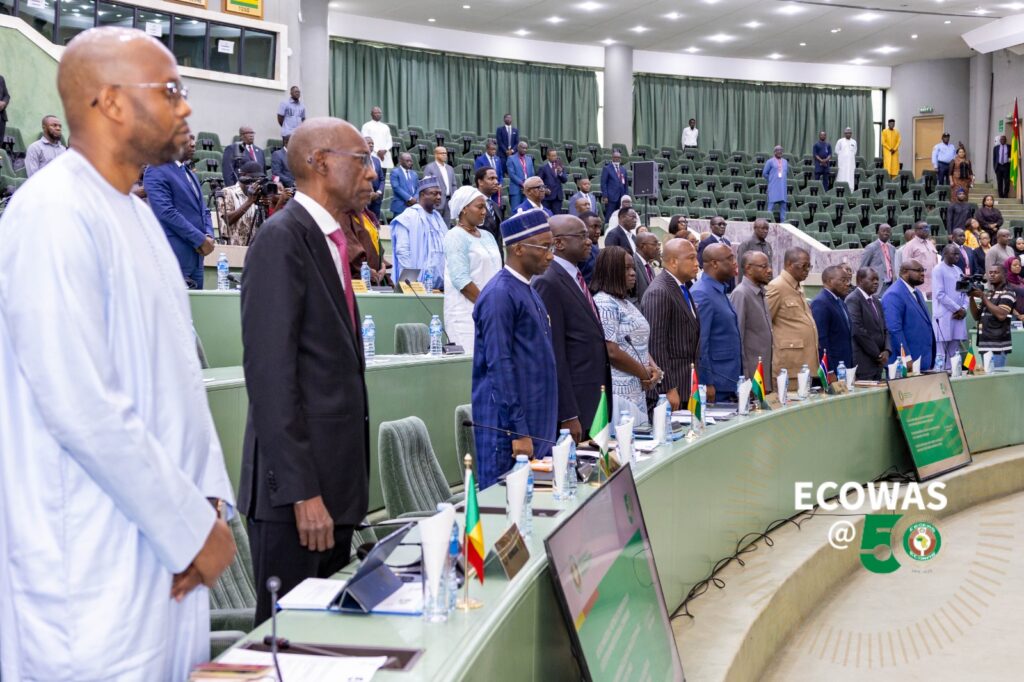
In his address, Touray emphasized that the Commission’s comprehensive memorandum—now the guiding document for the deliberations—was grounded in both legal mandates and the rich institutional history of ECOWAS since its inception in 1975.
“The memo was prepared taking into account the 2012 Supplementary Act on the Modalities for the Allocation of Statutory Positions and historical data on allocations. We trust the Committee will examine this proposal with the broader interest of our Community in mind,” he said.
The President also pledged the Commission’s full support throughout the deliberations, noting that success depended on cooperation and a commitment to principles over politics.
Setting a tone of diplomacy and inclusivity, Ambassador Odumegwu-Ojukwu, chairing the Committee, reiterated Nigeria’s unwavering commitment to ECOWAS and its leadership in pushing for reforms that reinforce unity and justice within the bloc.
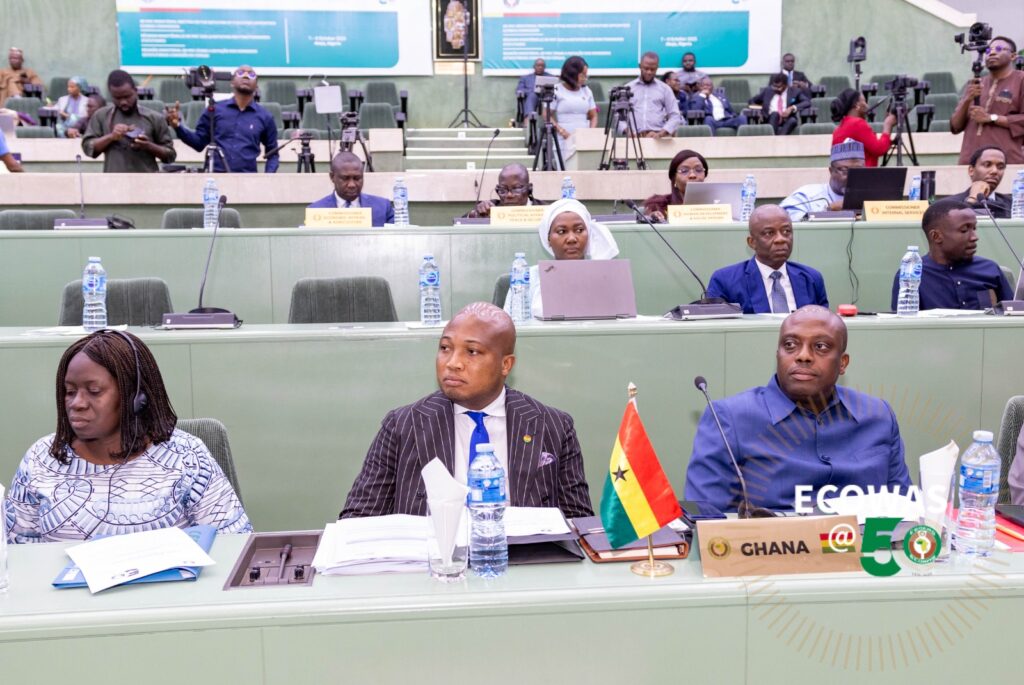
“Our presence here today reflects the significance we collectively place on this task—one that lies at the heart of our regional integration agenda,” she stated. “This is not about personal or national gain. It is about preserving the collective interest of our region.”
Ambassador Odumegwu-Ojukwu stressed the need for sensitivity in the discussions, particularly in light of recent institutional reforms that have reduced the number of available statutory positions. She urged Member States to consider the legitimate aspirations of smaller nations who have long demonstrated commitment to ECOWAS despite limited resources.
“Equity does not mean equality in numbers, but fairness in opportunity and recognition,” she asserted, calling on all delegates to engage with “open-mindedness, objectivity, and unity of purpose.”
The outcome of the Abuja meeting is expected to be instrumental in shaping the next generation of ECOWAS leadership, as current statutory appointees are set to complete their non-renewable four-year terms between July and October 2026.
As discussions continue into the second day, the focus remains on the Committee’s ability to forge consensus, manage political sensitivities, and ensure decisions that strengthen unity, inclusiveness, and long-term regional integration.



